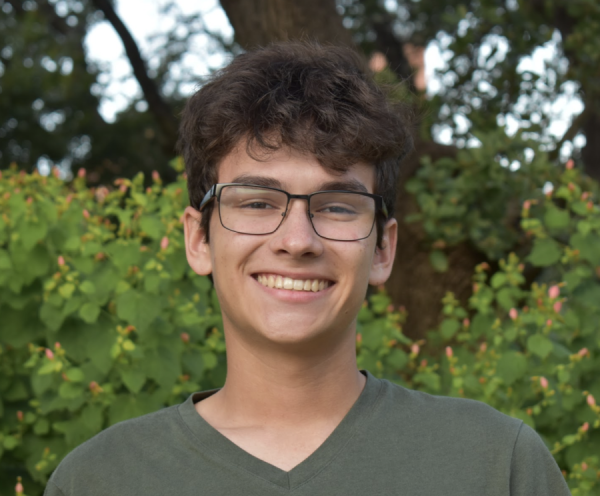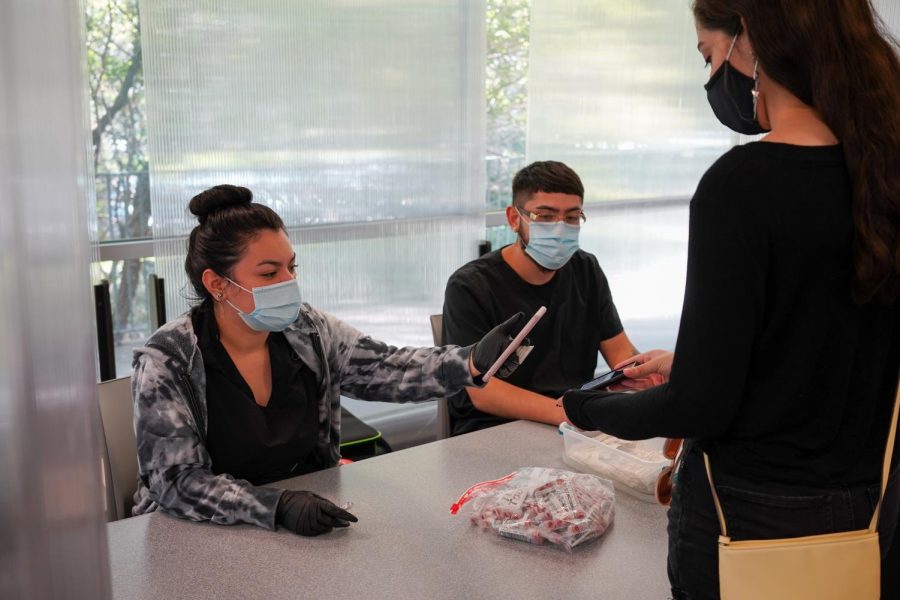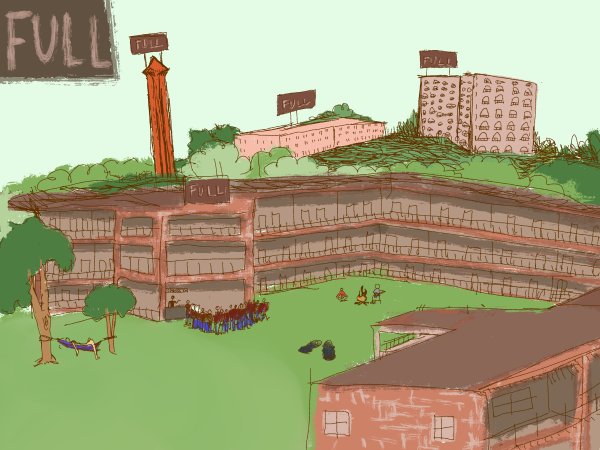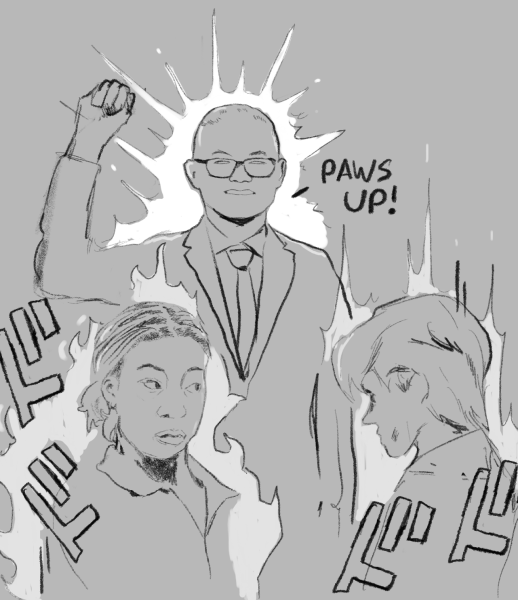In-person classes resume amid Delta variant surge
Students readjust to campus life as ProtecTU guidelines continue
Baseline and surveillance testing conducted on arrival to campus returned eight positive cases. Over 1,000 tests have been administered in the weeks since classes started, according to an email from Tess Coody-Anders, Vice President of Strategic Communications and Marketing.
Despite students’ growing anticipation of a “normal” fall semester, the new COVID-19 Delta variant and its transmission among the Bexar County population prompted a change of Trinity University’s ProtecTU protocols, including a mask mandate and restrictions on gatherings.
A 94% campus vaccination rate, however, permitted a return to in-person classes.
“I do think the engagement of our campus, our vaccination rates and the many protocols that we have in place are working to mitigate the potential for that virus to take root and spread,” said Tess Coody-Anders, vice president for Strategic Communications and Marketing at Trinity, who manages the operations and communications of COVID-19 policy at the school.
On Aug. 5, the school announced its plan to modify the ProtecTU guidelines in a schoolwide email, explaining their decision in light of the highly contagious Delta variant.
“At first I was disappointed. I was looking forward to having a more normal semester again,” said Shauna Odum, junior neuroscience and computer science major. “But after I put some thought into it, I was actually pretty grateful [for the protocols] because the Delta variant is dangerous, and I appreciate that Trinity’s been doing everything that they can to keep people safe. Honestly, I’d rather have stricter guidelines and still be able to have classes in-person and everything than if we would have had to go back online.”
While local public schools such as the University of Texas at San Antonio and Texas A&M-San Antonio encourage masks, they are legally restricted by the Texas mask mandate ban. Trinity’s status as a private university allows administration to require students, faculty and staff to wear masks indoors and institute the necessary protocols.
Although Trinity encourages individuals to get vaccinated, it has not appointed a vaccination requirement. Instead, campus community members must submit a mandatory vaccination status form to aid in keeping track of campus vaccination stats.
“Adherence and adoption of the vaccination among the general population of San Antonio is not nearly as strong as it is among the Trinity community,” Coody-Anders said. “That’s good and it’s bad. That means that while we’re on campus, working and playing together, we are much more protected. However, we are an open and porous campus. We live, work and play in the community, too, so we must take precautions on campus in tandem with San Antonio.”
Those that are unvaccinated, including partially vaccinated individuals, are required to participate in weekly COVID-19 surveillance tests. On-demand testing is provided for all in the Murchison Lounge.
“We don’t want to do anything that could undo pressure on the greater community,” Coody-Anders said. “We are not just in San Antonio; we are a part of San Antonio, so we need to do our part.”
The Delta variant emerged in the United States and Bexar County in mid-June, prompting a surge in cases and filling hospitals with sick, mostly unvaccinated, patients. The variant creates similar but milder symptoms of the original virus in vaccinated individuals and is highly transmissible.
“We heard from many students, faculty and staff who felt a loss of hope, a loss of control, anger, fear, denial and/or frustration,” said Marcy Youngdahl, Director of Integrated Counseling and Health Services at Trinity. “Now that we have had time to experience these raw emotions, we are adapting. We are back on the path of recovery. We, as administrators and care providers, are driven to support you as you make these adjustments.”
The monthly epidemiological report of San Antonio for July 2021 showed that, in the month of July, Bexar County reported 15,183 new COVID-19 cases — over four times the previous month’s number. Those aged 20-29 showed the highest case rates at 21%. According to the report, the average age of cases in July 2021 (33 years) was lower than the average age of all COVID-19 cases during the pandemic (37 years).
“That tells us that this segment of young adults, while not necessarily getting sick enough to go to the hospital . . .are vectors,” Coody-Anders said. “They get it and can spread it very rapidly. When we take all of that into account, we can see how adhering to the Trinity guidelines is not just an individual choice but a community one.”

My name is Sam (he/him) and I'm a photographer here with the Trinitonian. I'm a senior Communications and German double major from Austin, Texas, and...
















